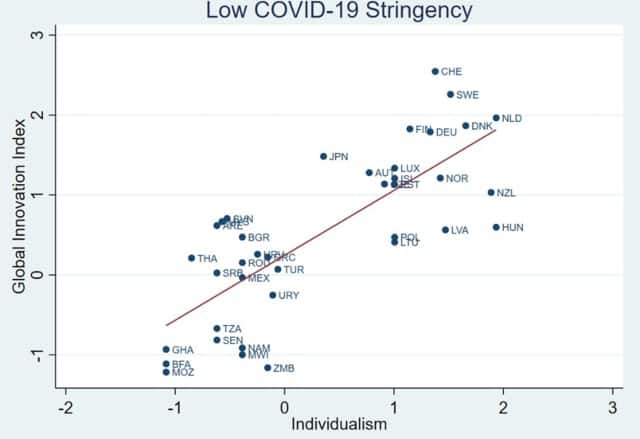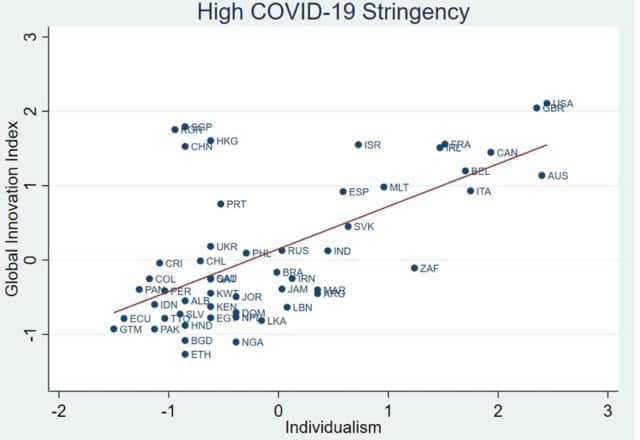Combatting a pandemic requires innovation at multiple levels — from intelligent resource allocation to seamless healthcare delivery mechanisms to novel approaches to keep the economy afloat. Innovation is often understood to be monetised creativity, and creative solutions are both original and effective. During the COVID-19 pandemic, individuals, communities, and nations have attempted to make meaning of ongoing circumstances, often relying on their latent creativity to get by. During this time, with the exception of a few months, creative and cultural industries around the world have similarly had to improvise and find new solutions to emerging problems. The creative economy, and underlying innovation, has faced a marked slowdown owing to the pandemic —something that we cannot afford to ignore. Innovation is likely one of the most vital competencies in the modern age, something that will take decades, if not centuries, for machines to master. In the times of COVID-19, global innovation seems even more crucial for rejigging economies, developing efficient and efficacious vaccines, and facilitating behaviour change at a global scale. However, the conditions under which innovation is likely to thrive (or decline) are closely associated with the socio-cultural makeup of nations and its citizens. Geert Hofstede was the first to conceptualize dimensions along which cultures and individuals differed: individualism-collectivism, power distance, uncertainty avoidance, masculinity-femininity, and long-term orientation. For instance, innovation is more likely to flourish in nations that are more individualistic (put the self before others), more egalitarian in terms of distribution of power, and more willing to tolerate uncertainty. These are also likely to be countries that are Western, Educated, Industrialised, Rich, and Democratic ( WEIRD), like the US. On the other hand, countries that tend to be more collectivist (such as India), with unequal power distributions, and more likely to avoid uncertainty may have lower innovative contributions. In the context of the COVID-19 pandemic, with governments across the world ordering restrictions on movement and gatherings, we asked whether such stringency would interact with the pre-existing relationship between cultural dimensions and country-level innovation. In a recent paper published in Frontiers in Psychology, we found that levels of government stringency as a response to COVID-19 had no effect on innovation in collectivist and less egalitarian countries and that these innovation levels were relatively lower. In contrast, in countries with more individualistic tendencies and distributed power in societies, increased stringency measures via the government had dire impacts on innovation (Figure 1). In such countries, when the government response to COVID-19 was lenient, innovation remained high (Figure 2). The paper in no way suggested that governments should reduce COVID-19 restrictions, but indicated that implementing lockdowns and other measures to curb what may be perceived as personal freedoms have different repercussions, crucially depending on the cultural dimensions accepted in that country. [caption id=“attachment_9522741” align=“alignnone” width=“640”]  Figure 1. In countries with lower COVID-19 stringency, but higher levels of individualism, innovation levels continued to remain high.[/caption] [caption id=“attachment_9522751” align=“alignnone” width=“640”]  Figure 2. In countries with higher levels of government stringency due to COVID-19, innovation in individualistic countries was relatively lower.[/caption] It is possible that individuals in power distant countries (where unequal power distributions are expected and accepted) look to local and national governments for instructions, particularly in uncertain situations. Such nations, as collectives, may not consider stringent government measures as hampering personal freedoms, but rather may perceive restrictions as contributing to the greater good. Conversely, individuals in countries with higher regard for individual freedoms and equally distributed power are likely to regard government strictness as impinging on fundamental rights, indirectly or directly lowering innovation. In a way, implementing novel and useful ideas (some of which affect the bottom line) is literally what most of us have been doing ever since COVID-19 was declared a pandemic. Scientists, particularly teams working to develop a vaccine, have been at the forefront of this innovative endeavour. Not only have numerous COVID-19 vaccines been developed in record time, but these have also paved the way for laying the groundwork for HIV and malaria vaccine research. Once developed, behavioural scientists have been applying innovative strategies to encourage COVID-19 vaccine uptake and combat vaccine hesitancy. Individuals in society are also doing their bit to raise awareness, like this college gymnast who pulled out a vaccination card right after his athletic feat. The act could be perceived as a creative way to exaggerate the benefits of the vaccine (it is so effective that it helped me become a better gymnast!) or even to promote getting the vaccine (I’m able to perform in front of people because I got vaccinated!). In light of India being in the midst of a “second wave,” we find ourselves once again grappling with changing routines and uncertainty. At the global, national, and local levels, innovation and creativity are proposed to buffer against the damaging effects of COVID-19, not only on personal, but also economic health. Those who adapt to a changing environment are the most likely to survive, and creativity has clear evolutionary benefits. Entities across sectors may do well to harness and foster such originality, to continue surviving the pandemic. The author is with the Department of Psychology at Monk Prayogshala, Mumbai.
The creative economy, and underlying innovation, has faced a marked slowdown owing to the pandemic —something that we cannot afford to ignore
Advertisement
End of Article


)

)
)
)
)
)
)
)
)



